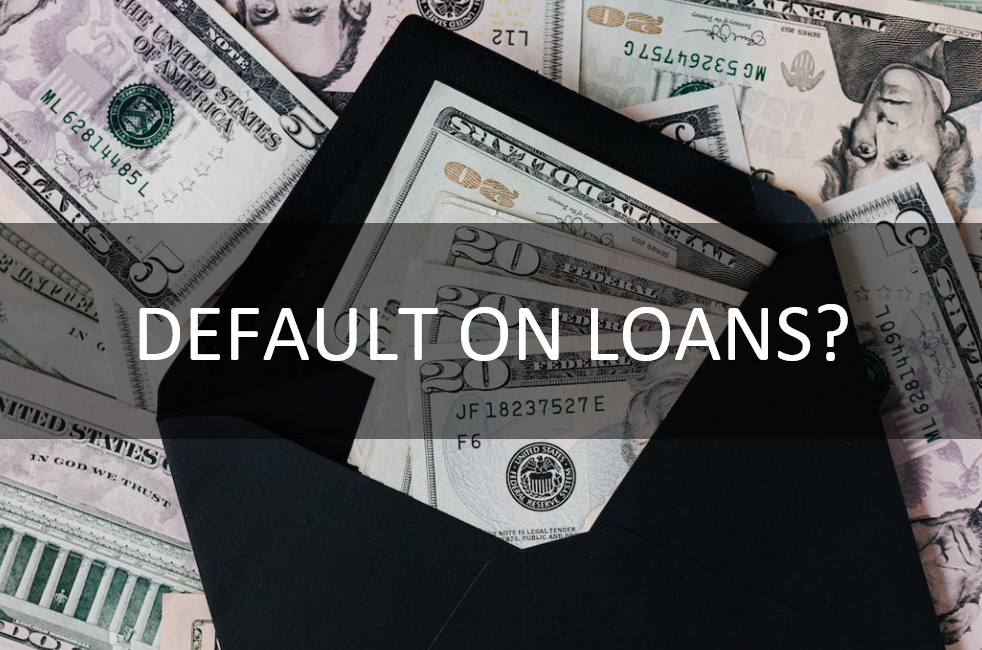
Defaulting on a loan means that you have failed to make the required payments on the loan, and it can have serious consequences for your financial future. When you default on a loan, the lender can take legal action to collect the debt, and it can result in wage garnishments, liens on your property, and even legal action. Additionally, defaulting on a loan can have a negative impact on your credit score, which can make it more difficult to obtain credit in the future.
When you default on a loan, the first step that the lender will typically take is to contact you to remind you of your obligation to make the payments. The lender may also offer you a new payment plan, or work with you to come up with a solution that will allow you to catch up on the missed payments. If you are unable to come to an agreement with the lender, the lender may take legal action to collect the debt.
One of the most common forms of legal action that a lender may take is wage garnishment. This means that the lender can take a portion of your wages directly from your paycheck, in order to repay the debt. This can result in a significant reduction in your take-home pay, and it can make it more difficult to pay your other bills and expenses.
Another form of legal action that a lender may take is a lien on your property. A lien is a claim that the lender has on your property, and it gives the lender the right to take possession of the property if you are unable to repay the debt. This can result in the loss of your home, and it can have a significant impact on your financial future.
In addition to wage garnishments and liens on your property, defaulting on a loan can also result in legal action, including a lawsuit. The lender may take you to court in order to collect the debt, and if the court rules in favor of the lender, you may be required to repay the debt, plus interest and court costs.
Defaulting on a loan can also have a negative impact on your credit score. Your credit score is a measure of your creditworthiness, and it is used by lenders to determine your eligibility for credit. When you default on a loan, the late payments and the legal action that the lender takes will be reported to the credit bureaus, and it will have a negative impact on your credit score. This can make it more difficult to obtain credit in the future, and it can result in higher interest rates and lower credit limits.
It is important to remember that defaulting on a loan should be a last resort, and there are steps that you can take to avoid defaulting on your loans. Some of these steps include:
- Communicating with your lender: If you are facing financial difficulties and are unable to make the payments on your loan, it is important to contact the lender as soon as possible. Your lender may be able to offer you a new payment plan, or work with you to come up with a solution that will allow you to catch up on the missed payments.
- Prioritizing your debts: If you are unable to make all of your loan payments, it is important to prioritize your debts, and to make the payments on the loans that have the highest interest rates or the most severe consequences for default first.
- Reducing your expenses: If you are facing financial difficulties, it may be necessary to reduce your expenses in order to free up cash to make your loan payments. This may include cutting back on discretionary spending, such as dining out or entertainment, or finding ways to reduce your monthly bills, such as negotiating with your cable or internet provider.
- Increasing your income: If you are facing financial difficulties, it may be necessary to increase your income in order to make your loan payments. This may include taking on a part-time job, starting a side hustle, or asking for a raise at work.
- Seeking professional financial advice: If you are facing financial difficulties and are unable to make the payments on your loans, it may be helpful to seek professional financial advice. A financial advisor can help you to understand your options, and to create a plan for improving your financial situation.
It is also important to understand the impact of defaulting on your loans on your co-signers, if you have any. A co-signer is someone who agrees to take responsibility for the loan if you are unable to make the payments, and it is usually a family member or a close friend. If you default on a loan that has a co-signer, it can result in the co-signer being held responsible for the debt, and it can have a negative impact on their financial future, as well as your own.
Additionally, it is important to understand the impact of defaulting on your loans on your ability to obtain credit in the future. Defaulting on a loan will have a negative impact on your credit score, and it can make it more difficult to obtain credit in the future. This can result in higher interest rates and lower credit limits, and it can impact your ability to purchase a home, buy a car, or take out other loans in the future.
Defaulting on a loan can have serious consequences for your financial future, including wage garnishments, liens on your property, legal action, and a negative impact on your credit score. If you are facing financial difficulties and are unable to make the payments on your loan, it is important to contact the lender as soon as possible, to try to come to an agreement that will allow you to catch up on the missed payments. Additionally, it is important to take steps to improve your financial situation, such as reducing your expenses, increasing your income, or seeking professional financial advice, in order to avoid defaulting on your loans in the future.
